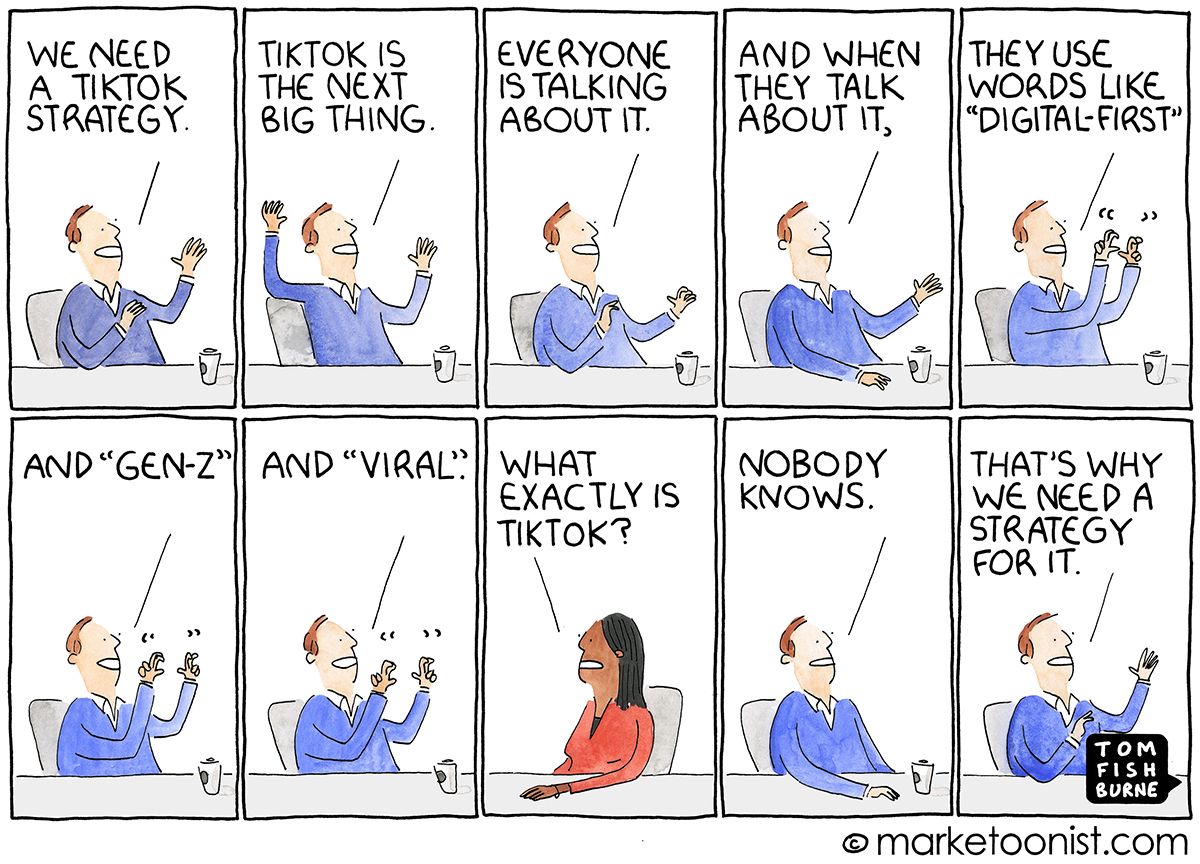By: Katie Ryan Syder

Have you ever heard of TikTok? In the last year, TikTok has taken the world by storm, becoming one of the most popular social media outlets with over 1 billion users.[1] TikTok is an application that “is the leading destination for short-form mobile video.”[2] Users can find short videos of dance routines, recipes, comedy skits, and more. Most recently, doctors and lawyers have taken to TikTok to provide users with information regarding their professions.[3] It has become an easy way to relay messages and connect with Generation Z.[4] As of now, doctors and attorneys are using the platform to create videos that address common myths, but as TikTok continues to gain users, will we see a shift to these professionals using TikTok for advertising?
Currently, advertising on TikTok is still somewhat unknown.[5] TikTok provides a new market of individuals, specifically young teens.[6] This new market and the ability to advertise to this generation could be extremely lucrative if done right.[7] Although TikTok allows companies to purchase advertisements, many users advertise products through their personal accounts. Jacob Pace, CEO of a media and advertising company, explained, “Gen Z doesn’t mind being advertised to, as long as its quality content.”[8] Rather than purchase advertisements between each video, users are drawn to personal videos that contain a level of quirkiness.[9] Professionals such as doctors or attorneys have begun to use the platform to create these quirky videos to gain views, and some have been extremely successful.[10] In an interview with BBC, doctors and attorneys described how they are using TikTok to educate users because of its accessibility.[11] All persons can download the application for free.[12] While some doctors use it to debunk myths about fertility, some attorneys use it to educate individuals about the immigration laws in the United States.[13] Anthony Barbuto, an attorney and user of TikTok with over 2 million followers, stated he uses TikTok “to inspire young people and change the perception of the legal practice, which is often viewed as a cold and rarefied profession of calculating and emotionless lawyers.”[14] Although these professionals might not technically be using TikTok as an advertisement tool, they are gaining a level of notoriety among Gen Z.
Attorneys have not always been permitted to advertise their services. Previously, attorneys were not allowed to use advertisements to acquire clients. Attorneys gained clients through avenues, such as word of mouth and reputation. In 1977, this changed with the Supreme Court of the United States’ holding in Bates v. Arizona State Bar.[15] Bates was a turning point for advertisements in the legal profession. Arguments in support of this ban included the desire to protect the image of the legal profession, the potential risk of circulation of misleading information, and the idea that advertisements could lead to the encouragement of litigation.[16] While these arguments had been successful before the Supreme Court of Arizona, the Supreme Court of the United States reversed in part.[17]
The Supreme Court of the United States found that these arguments for the ban on advertisements were unconvincing.[18] They held that the First Amendment protected commercial free speech, which meant attorneys were permitted to identify and describe their services.[19] The Court did permit state bar associations to regulate misleading information, disclaimer requirements, and on-real time solicitations.[20]
In addressing the issue of advertising in the legal profession, the Court was concerned about the potential circulation of misleading information.[21] Without regulation, attorneys might be allowed to exaggerate their expertise. Lack of regulation could put those with little legal knowledge at risk of being misled.[22] Bates determined that advertising was not completely prohibited, but permitted the American Bar Association (ABA) and state bar associations to place some limitations.[23] For example, the ABA has created regulations, one being Rule 7.1, which prohibits attorneys from using false or misleading communications.[24]
Although advertising is now allowed in the legal profession, regulations can vary among states. The increased use of social media, specifically platforms like TikTok, has resulted in a new realm of advertising for all professions. Some attorneys are using TikTok to debunk myths, while others are using it to bring a new perspective to the legal profession. But, before you post your next TikTok, be sure your video does not violate any ABA or state regulations on advertisements.
[1] Zoe Schiffer, TikTok’s Teen Stars Want Money – Marketers Are Starting To Catch On, The Verge (Nov. 26, 2019, 8:00AM), https://www.theverge.com/2019/11/26/20975168/tiktok-bytedance-advertising-brands-sponsorship-flighthouse.
[2] Our Mission, TikTok, https://www.tiktok.com/about?lang=en.
[3] Shria Popat, The Doctors And Lawyers Giving Advice On TikTok, BBC News (Feb. 17, 2020), https://www.bbc.com/news/av/world-us-canada-51507802/the-doctors-and-lawyers-giving-advice-on-tiktok.
[4] Schiffer, supra note 1.
[5] Id.
[6] Id.
[7] Id.
[8] Id.
[9] Id.
[10] Popat, supra note 3.
[11] Id.
[12] Id.
[13] Id.
[14] Adam Mawardi, Meet The Lip-Syncing Lawyer With Nearly 2 Million TikTok Followers, Legal Cheek (Oct. 25, 2019, 8:57 AM), https://www.legalcheek.com/2019/10/meet-the-lip-syncing-lawyer-with-nearly-2-million-tiktok-followers/.
[15] Bates v. Arizona State Bar, 433 U.S. 350 (1977).
[16] Id. at 368-374.
[17] Id. at 384.
[18] Id. at 379.
[19] Id. at 364.
[20] Id. at 384.
[21] Id. at 375.
[22] Id.
[23] Id. at 384.
[24] Model Rules of Prof’l Conduct r. 7.1 (Am. Bar Ass’n 1980).
image source: https://marketoonist.com/2019/03/tiktok.html
